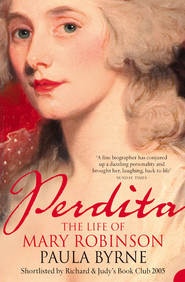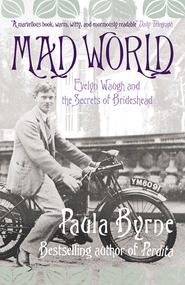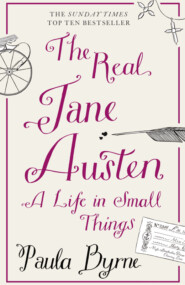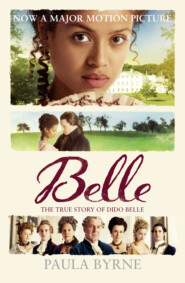По всем вопросам обращайтесь на: info@litportal.ru
(©) 2003-2024.
✖
Kick: The True Story of Kick Kennedy, JFK’s Forgotten Sister and the Heir to Chatsworth
Настройки чтения
Размер шрифта
Высота строк
Поля
Rose’s lack of emotional nourishment left its scars on her children. Jack, who was a sensitive boy, remembered: ‘My mother never really held me or hugged me. Never! Never!’21 (#litres_trial_promo) The only time she touched them was to spank them. Kick, like Jack, was uncomfortable with physical demonstrativeness, which was another legacy of Rose’s emotional sterility. Later in life, Kick sought out several maternal substitutes, most notably Nancy Astor, with whom she developed deeply affectionate relationships. Older women were drawn to her, sensing that she lacked that special mother’s love.
Rose left the hugging and kissing to the children’s nanny, a working-class Irishwoman called Katherine Conboy, known to the family as ‘Kico’. Kick and her sisters adored her, and they would spend hours in the kitchen chatting to her. She in return adored the Kennedy children. Rose was perfectly happy with this arrangement. She simply did not see it as her role to kiss and hug for fear of ‘(s)mother love’. Respect was her by-word. The children always called her ‘Mother’, and they feared and loved her in equal measure.
Thus the Kennedy children were raised as upper-class British children were, by the nanny, and emotionally distant from their parents. It made them tough and independent, but it also left psychological wounds. Perhaps this was one of the reasons why Kick and Jack understood and sympathized with their English aristocratic friends. Rose’s strategy was to encourage the eldest son and daughter to take on the role of nurturing and shaping the other children. Joe Jr took to this role of little father with aplomb. Jack later said, ‘I think if the Kennedy children amount to anything now, or ever amount to anything, it will be due more to Joe’s behavior and his constant example than to any other factor.’22 (#litres_trial_promo)
The surrogate-mother role was more difficult for Kick because of Rosemary. Kick had to assume the role of eldest sister and was encouraged to take responsibility for all of her sisters, but, although she loved them, she was not naturally suited to the role. She was too wild, too free-spirited. Eunice, just one year younger, was much more temperamentally suited to that role, and she felt especially responsible for Rosemary. All of the girls mothered Teddy, the baby of the family, who was born in 1932. ‘It was like having an army of mothers around me,’ he recalled.23 (#litres_trial_promo)
Kick worshipped her father. He was a forceful presence in the lives of the children, despite the long absences caused by his work. He approached his duties as a father with great seriousness, and he loved children, but only his own. When he was away from home, every Sunday the children would line up in order of age and speak to him on the telephone.24 (#litres_trial_promo)
When he returned from business trips, it was a moment of high excitement for the children. ‘He would sweep them into his arms and hug them, and grin at them, and talk to them, and perhaps carry them around,’ Rose recalled. As each child became able to talk he would ‘want that child in bed with him for a little while each morning. And the two of them would be there propped up on the pillows, with perhaps the child’s head cuddling on his shoulder, and he would talk or read a story or they would have conversations.’25 (#litres_trial_promo) Joe struggled with Rosemary’s mental incapacitation. He wanted his children to be perfect Americans, and that was one of the reasons he especially doted on Kick, who was so lively and smart. She later called him a ‘powerhouse, a force of nature’.26 (#litres_trial_promo)
He believed in treating the small children as young adults, refused to talk down to them and was plain-speaking and blunt, though loving. He was very tactile with the children, unlike Rose. They knew, however, not to overstep the mark, and if they did, one ‘Daddy’s Look’ was all it took: ‘ice-cold steel blue, piercing right into and through you and stripped you to the soul’.27 (#litres_trial_promo) But if the children were ever in trouble, Joe insisted always on hearing the truth: ‘tell me the truth. Tell me everything about it, the whole truth. Then I’ll do everything I can to help. But if you don’t give me the truth, I’m licked.’28 (#litres_trial_promo)
Joe had his own inimitable way of speaking, which the children long remembered, with amusing phrases and aphorisms that became part of family lore: ‘applesauce’ (bullshit) was not tolerated, nor would he accept ‘monkey business’. ‘He doesn’t have the brains of a donkey’ or ‘He doesn’t have enough brains to find his way out of a telephone booth’ were Daddy expressions. ‘All my ducks are swans,’ he would say of the children, adding that Kick was ‘especially special’.29 (#litres_trial_promo) ‘No crying in this house’ was another favourite, along with ‘You’d better believe it’, ‘Things don’t happen, they are made to happen’ and ‘I don’t want any sour pusses around here.’30 (#litres_trial_promo) In later years, the children, now adults, would have cushions made with his aphorisms embroidered on them.31 (#litres_trial_promo)
Joe was not one for self-pity. Teddy revealed the key to his character when he described his father’s support and optimism, especially when things went wrong: this was when Joe was at his best. ‘The greater the disaster, the brighter he was.’ When things went really badly, Joe would declare, ‘That may be one of the best things that ever happened to you!’ But, most of all, Joe wanted his children to strive. Not necessarily to be the best, but to ‘strive’ for excellence. And then: ‘After you have done the best you can, the hell with it.’32 (#litres_trial_promo)
This interest and devotion exhibited by a father towards his children was highly unusual in those days, when fathers were often remote and women were left to run the house and family. As well as the telephone calls, the children were encouraged to write letters to their father, and he admonished them whenever they forgot to write. Kick’s earliest letters to him are full of affection and love, funny stories, and kisses, hearts and pictures. In preparation for writing her memoirs, Rose looked back over her papers and noted that Kick’s ‘early letters seemed so warm and affectionate, perhaps more so than the other children’.33 (#litres_trial_promo)
Kathleen also missed her father and worried about him when he was away: ‘Dear Daddy, I hope you have got rid of your cold … We are all fine and we miss you very much.’34 (#litres_trial_promo) She told him jokes, reported that she had joined the Girl Scouts, that there had been ‘peachy skating’ at the Field Club, and asked ‘are you coming home soon?’35 (#litres_trial_promo) Her letters to Rose were much less effusive.
In 1925, Joe set up a trust fund for each of his children that would increase to $10 million by the mid-1940s. All of the children were ‘trust fund’ babies. They had the cushion of money, which also bestowed confidence, but also carelessness.
In May 1927, when she was seven, Kick made her first Holy Communion. Her parents were in California, but she wrote to tell them that she had been preparing for it by going to church every day for the week leading up to the ceremony. It’s surprising to discover that Rose and Joe were absent. For Catholic children it’s a very special ceremony, a watershed moment in which the Holy Eucharist is taken for the first time. Little girls are dressed to look like mini brides in white dresses and veils, symbolizing purity. Shortly before Holy Communion, the child makes their First Confession, a daunting experience in which the heart is opened in a dark booth. The priest, who sits behind a screen or grille, gives absolution; the child says an act of contrition and is given penance in the form of prayers.
It was left to Joe Jr to take on the paternal role, writing to his parents to inform them that little Kathleen was preparing herself for the sacrament.36 (#litres_trial_promo) By this time Rose had seven children and was pregnant again. Joe Sr was about to become even busier, and Hollywood was beckoning.
3
Forbidden Fruit (#uf9c37b9e-24ca-51ad-af1e-5774b7de9ba7)
A real-life Jay Gatsby, ever-reinventing and legitimizing himself.
Amanda Smith, Joe’s granddaughter1 (#litres_trial_promo)
September 1927.
They tumbled out of the silver Rolls-Royce with blue fenders, like characters from F. Scott Fitzgerald’s The Great Gatsby. The glamorous woman and the tall, handsome, impeccably dressed man in his white flannels. Then came the children. There were seven of them, good-looking, beautifully turned out, barely able to conceal their excitement. Mother and children had taken a private train from Boston, where Joe met them, and they were now arriving at their newly rented home in Riverdale, an affluent suburb of New York. The Kennedys always knew how to make an entrance.
The move was crucial for Joe, who knew that however much money he made, he and his family would never belong in Brahmin Boston. They would never be welcomed at the right sort of country club. Joe later said that he had moved because he felt that his daughters would never be invited to the best coming-out parties in Boston. He knew that New York was a meritocracy in a way that Boston could never be.
Joe’s rise to the top was carefully orchestrated. He had the big house; he wore tailored suits and custom-made shirts and refused to ride the streetcar to the office, preferring to drive in his Cadillac. He gave up baseball for golf, through which he could make important connections. He was still an outsider. But there was one place where he could use his outsider status to his advantage, and where he would make his fortune. Hollywood.
In November 1919, Joe, seeing the opportunities in the new world of moving pictures, had set up his own film-distribution company, Columbia Films Inc. By 1926 he was a movie mogul, and owned his own motion picture company, FBO (Film Booking Offices of America). One of his strategies had been to convince the studios that he was the man who could clean up Hollywood. In the early twenties Hollywood had been rocked by sex scandals and charges of immorality, such as the notorious Fatty Arbuckle affair, when the actor was accused of the rape and murder of a young starlet.
Film titles such as Loving Lips, The Restless Sex and Short Skirts give an idea of the way that Hollywood was going. Joe would give Hollywood good clean family films. Furthermore, there was widespread anti-Semitic distrust of the studios, which were mainly run by Jews. Joe, by contrast, was ‘a Harvard graduate, a Boston businessman and banker, a family man, a practicing Christian, and decidedly not a New York City Jew’.2 (#litres_trial_promo) As studio head, Joe instituted new accounting procedures and fired several of the overpaid executives. While the films were produced in Hollywood, the major decisions were made on the East Coast. Kennedy moved into the FBO offices at 1560 Broadway off 24th Street in New York City.
Joe was known in the studio world as the ‘blond Moses’, leading the way for film companies converting from silent movies to talkies. His charisma and charm were remarked upon time and time again. The actress Joan Fontaine said, ‘You felt not just that you were the only one in the room that mattered, but the only one in the world.’3 (#litres_trial_promo) What he took from his time in Hollywood was the art of performing as a public personality, and the importance of image. In a stroke of PR genius, he invited in a group of newspaper reporters and explained his vision for the movie industry. ‘Wholesomeness, Mr Kennedy pointed out to his guests, is intended to form the keynote of the pictures … and there is to be a very general elimination of the sex problem movies and of those which depend upon sex appeal,’ announced the Boston Daily Globe.4 (#litres_trial_promo)
The Kennedy children were a key part of his image as a family man. From their perspective, to have a father in the movie world was thrilling. They had access to the latest Hollywood films, much to the envy of their friends. Kick’s early letters are full of references to the movies that she had seen. They provided the backdrop to her life. All the movies were checked in advance for their suitability: ‘if there was a slip-up and the plot became lurid, the projector was switched off and the audience was sent out’.5 (#litres_trial_promo) The boys loved the cowboy films that Joe sent over. Kick and her sisters watched Douglas Fairbanks movies and films with titles such as Welcome Danger.
Kick attended the Riverdale County School, along with four of her siblings. As Catholics, the Kennedys were outsiders. They were a tribe and they stuck together, but Jack and Kick found it easy to make friends, and were keen to establish their own identity outside that of being a Kennedy. After school, the children played touch football in the field behind the Presbyterian church, Kick joining in with her brothers. A friend remembered that ‘Kathleen was one hell of a football player. She was on top of everything.’6 (#litres_trial_promo)
She was especially close to Jack, a thin, underweight child who continued to be plagued with illness. Like many clever, sickly children who miss a lot of school, he devoured books and had a precocious intellect. His passion was for history and reading literature and poetry. One of his defence mechanisms was a highly developed sense of humour. Kick was the butt of many a brotherly joke poking fun at her lack of intellect, but this was part of their teasing relationship. A schoolfriend from Riverdale days observed that ‘Kathleen was bonded to Jack with a profundity that mere blood seemed insufficient to describe.’7 (#litres_trial_promo)
Kick was given a very special birthday present for her eighth birthday: a new baby sister. She was to be called Jean. Kick wrote to ‘Dear Daddy’ and told him, ‘I like Jean very much.’8 (#litres_trial_promo) Her father was taking his usual long vacation in Palm Beach. ‘I hope you are having a nice time in Florida. Do you go in swimming? Is the water cold?’ she asked in one of her earliest surviving letters.9 (#litres_trial_promo) In her neat, bold hand, she described a funny moment when she was given a present of a little box of powder for her doll, which she managed to spill over herself. Neither of Kick’s parents was home that winter. Rose had returned to Boston to have the new baby, and Joe refused to sacrifice his annual vacation with his male buddies and business associates.
There was a team of nannies and nursery maids dedicated to looking after the children in the absence of the parents. Joe’s closest friend and adviser was an old friend of Honey Fitz, a man called Edward Moore. He and his wife Mary were childless and they became surrogate parents to the Kennedy children. When Rose and Joe were away, the Moores stepped in to help.
In the days after Jean’s birth, a huge bouquet of flowers was delivered to St Margaret’s Hospital from the actress Gloria Swanson, congratulating Rose on the birth of her child. Joe finally arrived from Palm Beach at his wife’s bedside, carrying three expensive diamond bracelets. This was not just a gift for having the baby, it was a guilt present. What did Rose really think when she looked at Gloria Swanson’s bouquet of flowers and the diamond bracelet glittering on her arm? It was an open secret that Joe and Gloria Swanson were in the throes of a passionate affair.
They had met for the first time in November 1927. Gloria was just twenty-eight, beautiful, charismatic and perhaps the most famous movie star in the world. She looked like a younger, more glamorous version of Rose. She had the same black, glossy hair, luminous skin and sapphire-blue eyes. Joe was utterly captivated. She could further his reputation as a serious studio head. He was tired of making B movies and cowboy films. He saw the way Hollywood was going – talkies. He wanted a business partnership with the screen goddess and he wanted her for himself. When they first met for dinner to discuss their partnership, Joe assured her, ‘Together we could make millions.’10 (#litres_trial_promo) He offered to manage her, promising that he would reduce her debts and make her an even bigger star.11 (#litres_trial_promo)
The affair was to be a lasting one, and it posed a serious threat to his family. Gloria was utterly unlike the usual chorus girls that had previously attracted Joe. Before her, it was easy for him to compartmentalize his sexual affairs and his love for Rose. Rose was his wife, the mother of his children; the showgirls were there just for sex and for fun. Gloria was in an entirely different category.
Joe, more than ever, began to lead a bifurcated life, between his wife and large brood of handsome children and the glamorous movie star, the ultimate trophy mistress. In October 1928, he invited Gloria to a Halloween party in Riverdale along with her children. Gloria initially refused to meet the wife of the man she was sleeping with. But she did allow her children to go to the party. Her daughter, known as ‘little Gloria’, was the same age as Kick. She remembered the party with the decorations and all of the Kennedy children.
Kick was intrigued to meet the daughter of the world’s most famous movie star. She liked little Gloria, and took her to her Bronxville school to meet her schoolfriends. She introduced her guest as ‘Gloria Swanson’s daughter’. The other girls laughed and thought it was a joke: ‘After all, Gloria Swanson was, to them, practically a supernatural being, so she wouldn’t be in Bronxville.’12 (#litres_trial_promo) Kick was indignant that nobody believed her story.
She liked her new friend, but she longed even more to meet the beautiful star herself. She wouldn’t have to wait long. The seriousness of the love affair was evident from Joe’s deliberate and highly risky merging of his two lives. He was adamant that his star, Gloria Swanson, should meet the family.
4
Hyannis Port (#uf9c37b9e-24ca-51ad-af1e-5774b7de9ba7)
Our whole lives were centered in this one place.
Teddy Kennedy1 (#litres_trial_promo)
August 1929.
A chorus of residents and vacationers in the small seaside-resort town of Hyannis Port huddled excitedly around the harbour overlooking Nantucket Sound. In the distance they heard the buzzing of the Sikorsky amphibious plane, watched it flying low over the sea before it landed gracefully on the water and came to a halt: a more dramatic entrance could not be imagined, but then again, the flying boat was carrying one of the most famous women on the planet, and she was known for her love of drama.
Out from the tiny plane stepped Gloria Swanson. There was her lover, Joe Kennedy, in his launch, piloting her back to the shore where his wife waited to greet her. The women looked so eerily alike, except that the guest was nine years younger than the hostess. Joe was ecstatic at having Gloria on his arm, and, in the throes of his obsession with her, paid not the slightest attention to the whispers of his neighbours and friends. Nor did he care what his wife was thinking.
Rose was far too intelligent not to be aware of the gossip that circulated about her husband and Gloria, but she was not about to confirm the rumours, and certainly not to the nosy rubberneckers who clustered around the harbour waiting for a glimpse of the actress. Rose warmly welcomed her husband’s mistress. Gloria later mused on her rival’s sangfroid: ‘Was she a fool, I asked myself … or a saint? Or just a better actress than I was?’2 (#litres_trial_promo) Rose was neither fool nor saint. She knew exactly what was going on and, if she thought Joe was going too far expecting her to befriend his mistress, she didn’t show it. As usual, she held her head high, dressed impeccably and put on her best show. Gloria might be Joe’s mistress, but Rose was his wife.
Nine-year-old Kick was especially excited to be meeting Gloria Swanson. She and her sisters had converted a room above the garage into a clubhouse. They pasted movie posters on the walls and discussed their favourite stars. Gloria paid a special visit and scrawled her name on the wall. Kick may have intuited that something was not as it should be. Her best friend Nancy Tenney later recalled that the girls at school had two fan clubs, one for Constance Bennett and one for Gloria Swanson. None of the Kennedy sisters wanted to be in the Swanson camp: ‘Kathleen never discussed the reason she was so adamant. I didn’t know what it was all about until years later.’3 (#litres_trial_promo) However, Kick’s letters to her father suggest that she worshipped Gloria Swanson. Or perhaps she was following her mother’s example in pretending that Gloria was nothing more to her father than a business associate. She treasured a signed photo and constantly asked after little Gloria, with whom she began a correspondence.4 (#litres_trial_promo)
Joe was overstepping the mark in bringing his mistress to Hyannis. It was a place that was associated with family. The Kennedys considered it their true, spiritual home, the epicentre of their lives. A decade later, in 1939, Rose gave an interview to Reader’s Digest in which she set out the Kennedy family manifesto: ‘Years ago, we decided that our kids were going to be our best friends and that we could never see too much of them.’ Rose explained that, with her husband’s hectic schedule, it wasn’t possible to have friends, and go to dinner parties. Because Joe was often away from home, when he was with the family they didn’t want to share their precious time with outsiders. The substituting of children for friends meant that outsiders, close colleagues and, later, in-laws often felt excluded. The family was at once cohesive and suffocating. What Rose failed to understand was that her children needed friends with differences to kick against, in order to find out who they were. For her, family always, always came first. As she told Reader’s Digest: ‘as a result the Kennedy children became natives of the Kennedy family, first and foremost, before any city or any country’.5 (#litres_trial_promo)
Every summer, for the duration of the holidays, the whole family assembled at Hyannis Port. It was their playground, the backdrop to their lives. For generations, it would be the place to which they would return in times of triumph and tragedy. They all looked back on summers on the Cape as providing their happiest memories – the long summer vacation stretching out before them, the lazy hot days of sports and fun. The family had begun holidaying in Hyannis Port in 1924. In those days, it was not a fashionable place. The ‘Kennedy Compound’ lay far in the future. But there was good railway access, lovely sandy beaches and a golf club that was more than happy to accept Joe Kennedy as one of its members. Equally important for the Kennedys was that Hyannis Port had a Roman Catholic church. St Francis Xavier, located on South Street, was a pretty structure, built in 1874. Once called St Patrick’s Church, it changed its name to avoid giving the impression that it was an ‘Irish only’ church. This was the summer parish for the Kennedy family. Joe Jr and his brothers became altar boys.
The family rented Malcolm Cottage, a large white clapboard house with green shutters, at the end of Marchant Avenue, just a block from the sea. It had an extensive lawn where the children could play and it came with its own private beach. After renting the house for several years, Joe bought it in November 1928 and instructed the original architect Frank Paine to remodel it. Extra rooms were added, windows were widened to take in the sweeping ocean view and a large RCA sound movie theatre was built. Hyannis Port had only just got its own theatre for the talkies, so it was very spectacular that the Kennedy family had their own private facility, which showed the latest films shipped in from Hollywood.
The house was spacious but it was not grand. It was a lovely family home. Rose loved her Cape Cod garden and planted ‘old-fashioned blooms’ such as asters, chrysanthemums, calendulas, black-eyed susans and marigolds. The glorious riot of colour contrasted with the dazzling white of the clapboard house and the rich green lawn. There were butterflies, and innumerable birds: seagulls, oystercatchers, bobwhites and the beautiful red cardinal. Eagle-eyed children could spot chipmunks foraging for food. The beaches were lined with a profusion of wildflowers, in particular the hot pink wild beach rose, which emitted a strong and sweet fragrance. The family would hunt for beach plums, rose hips, elderberries, chokeberries and wild grapes.
One morning Rose bundled the children into the station wagon. They were off to forage for wild blueberries, each child carrying a tin pail. Ten miles into the wilds, they spotted a sunny patch of bushes with ripening berries and began to fill their buckets. Suddenly Eunice began screaming. A wasp had stung her, and all of the other children suddenly imagined that they, too, had been stung. Seconds later, Jack ran up yelling and waving his arms. He had sat on an anthill and ants were swarming all over him. Rose packed up the children ‘with a small harvest and my deflated educational ideas’. On the way home, they stopped off at the store and bought three quarts of blueberries: ‘I never mentioned picking blueberries again.’6 (#litres_trial_promo) Rose had her issues, but she certainly didn’t lack a sense of humour.











